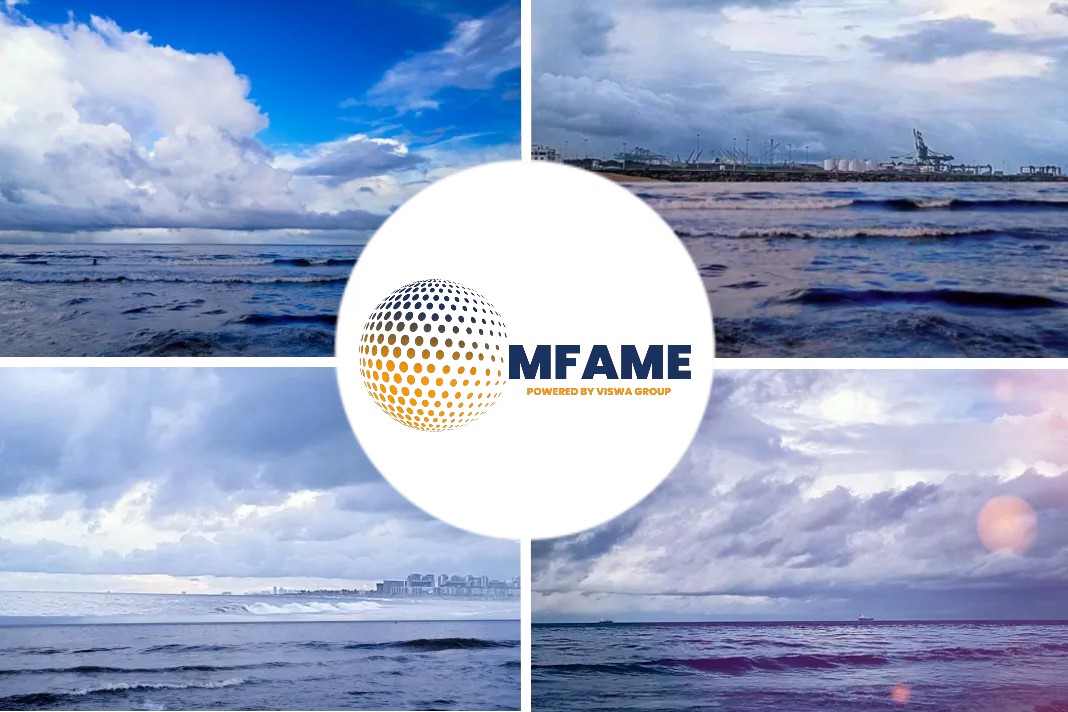 On 16 May, Lloyd’s List published an article sponsored by MOL Chemical Tankers about its endeavor to promote the use of spectrophotometers.
On 16 May, Lloyd’s List published an article sponsored by MOL Chemical Tankers about its endeavor to promote the use of spectrophotometers.
‘Washing water analysis’
MOL Chemical Tankers (MOLCT) says it has seen strong interest in its innovative ‘washing water analysis’ process, jointly developed with a chemical consultancy, which has proven superior to traditional wall wash inspection.
MOLCT has employed the process on all its vessels, equipping them with spectrophotometers that allow seafarers to monitor all tank cleaning operations as they happen, without having to enter the confined spaces of the cargo tanks. The monitoring determines if the tanks, cargo lines and manifold areas are clean and free from previous cargo, reassuring customers the vessels are suitable for loading.
Historically, chemical tankers are inspected by third-party surveyors prior to loading the next nominated cargo, and in many cases that involves tank entry and the taking of wall wash samples to determine cargo tank suitability.
“We have been able to consistently demonstrate that there is a safer and more environment-friendly way to verify that a chemical cargo can be loaded successfully, through testing of the wash water sampling collected from the ship’s manifold; the washing water analysis process ensures greater accuracy of the whole cleaning status, including that in the entire tank and the line, and we are happy to share this information,” said Dorte Creaven, General Manager, MOL Chemical Tankers Europe A/S.
“Confined space entry has accounted for a number of fatalities on board tankers in past years, and we are absolutely committed to minimise this risk in the future, particularly as we recognise the weakness of the wall wash inspection, which is the primary reason why seafarers are forced into the cargo tanks multiple times, during the tank cleaning process,” Ms Creaven said.
Dangers of wall wash inspection
She warned that the very act of having to pass a wall wash inspection can lead to over-cleaning of vessels, which is proven to significantly increase environmental impact in terms of:
• CO2 emissions (every hour of unnecessary hot water washing liberates about 2MT of CO2)
• Discharge of excessive volumes of cleaning chemicals and residues into the sea
Furthermore, for every third-party wall wash inspection, there are a minimum of three confined space entries into each cargo tank. Given the tanks must meet wall wash specifications prior to arrival at a loading port, seafarers are required to make multiple additional confined space entries during each tank cleaning operation.
“The most positive endorsement of this (washing water analysis) initiative has so far come from our customers, many of whom have already adopted (it) in place of the wall wash inspection, and in so doing, have successfully loaded and discharged significant volumes of high purity chemical cargoes.”
Safety, sustainability and service
The list of MOLCT’s customers includes many of the largest chemical suppliers in the world, which have their own KPI’s relating to safety, sustainability and environmental impact, all of which are positively impacted by the washing water analysis process.
Ms Creaven said: “We are committed to the safety of our seafarers and to long-term sustainability while providing our customers with the highest quality transportation services they demand.
“Our objective for the remainder of 2021 and thereafter is to invite all of our customers to join us and work with us to make a safer and better future. We want our customers to do business with MOLCT because they trust our name and recognise that our expertise ensures we will meet and exceed all of their expectations, at the same time always safeguarding the welfare of our seafarers, so that they can come home to their families, when their work is done.”
Did you subscribe to our daily newsletter?
It’s Free! Click here to Subscribe!
Source: Lloyd’s List
















